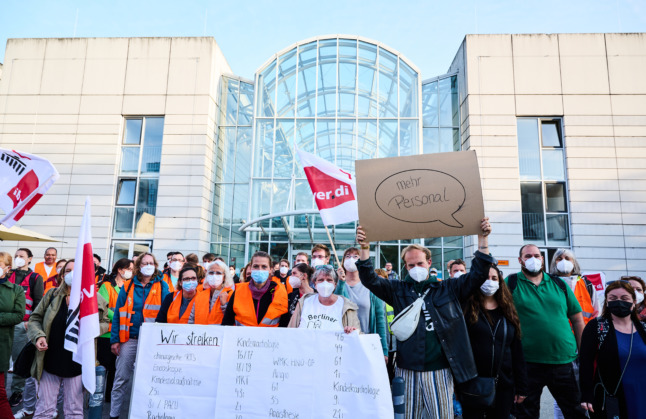“Those who provoke strikes should not be surprised when they get them,” said Frank Werneke, who heads the Verdi union that represents more than 800,000 public sector employees.
No start date has been announced yet for the industrial action which will affect all of Germany’s 16 states with the exception of Hesse during November.
But with staff from dozens of university clinics represented by the union, health institutions are expected to be hard hit by the stoppage.
Some 4,500 beds in intensive care are currently already out of service because of an acute shortage in medical staff.
Meanwhile, doctors are warning of a sharp rise in Covid patients filling intensive wards – most of whom are unvaccinated.
Werneke said the union had no choice but to raise the pressure as the employer has so far refused to make a counter offer to its demands.
The union is seeking a five percent wage hike for public sector employees, or a minimum of 150 euros in salary increase monthly.
For workers in the health sector, it wants a 300 euro monthly increase.
The lead negotiator for the states, Reinhold Hilbers, said they will not put forward any offer as long as the union refuses to agree to a pay scale reform.
READ ALSO: German hospitals see sharp increase in Covid-19 patients



 Please whitelist us to continue reading.
Please whitelist us to continue reading.
Member comments